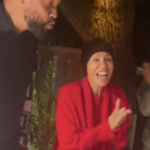
The major social media companies all say they are ready to deal with a torrent of misinformation surrounding the midterm elections in November.
A report released on Monday, however, claimed that they continued to undermine the integrity of the vote by allowing election-related conspiracy theories to fester and spread.
In the report, the Stern Center for Business and Human Rights at New York University said the social media companies still host and amplify “election denialism,” threatening to further erode confidence in the democratic process.
The companies, the report argued, bear a responsibility for the false but widespread belief among conservatives that the 2020 election was fraudulent — and that the coming midterms could be, too. The report joins a chorus of warnings from officials and experts that the results in November could be fiercely, even violently, contended.
“The malady of election denialism in the U.S. has become one of the most dangerous byproducts of social media,” the report warned, “and it is past time for the industry to do more to address it.”
The State of the 2022 Midterm Elections
With the primaries over, both parties are shifting their focus to the general election on Nov. 8.
The major platforms — Facebook, Twitter, TikTok and YouTube — have all announced promises or initiatives to combat disinformation ahead of the 2022 midterms, saying they were committed to protecting the election process. But the report said those measures were ineffective, haphazardly enforced or simply too limited.
Facebook, for example, announced that it would ban ads that called into question the legitimacy of the coming elections, but it exempted politicians from its fact-checking program. That, the report says, allows candidates and other influential leaders to undermine confidence in the vote by questioning ballot procedures or other rules.
In the case of Twitter, an internal report released as part of a whistle-blower’s complaint from a former head of security, Peiter Zatko, disclosed that the company’s site integrity team had only two experts on misinformation.
The New York University report, which incorporated responses from all the companies except YouTube, called for greater transparency in how companies rank, recommend and remove content. It also said they should enhance fact-checking efforts and remove provably untrue claims, and not simply label them false or questionable.
A spokeswoman for Twitter, Elizabeth Busby, said the company was undertaking a multifaceted approach to ensuring reliable information about elections. That includes efforts to “pre-bunk” false information and to “reduce the visibility of potentially misleading claims via labels.”
In a statement, YouTube said it agreed with “many of the points” made in the report and had already carried out many of its recommendations.
“We’ve already removed a number of videos related to the midterms for violating our policies,” the statement said, “and the most viewed and recommended videos and channels related to the election are from authoritative sources, including news channels.”
TikTok did not respond to a request for comment.
There are already signs that the integrity of the vote in November will be as contentious as it was in 2020, when President Donald J. Trump and some of his supporters refused to accept the outcome, falsely claiming widespread fraud.
Inattention by social media companies in the interim has allowed what the report describes as a coordinated campaign to take root among conservatives claiming, again without evidence, that wholesale election fraud is bent on tipping elections to Democrats.
“Election denialism,” the report said, “was evolving in 2021 from an obsession with the former president’s inability to accept defeat into a broader, if equally baseless, attack on the patriotism of all Democrats, as well as non-Trump-loving Republicans, and legions of election administrators, many of them career government employees.”




